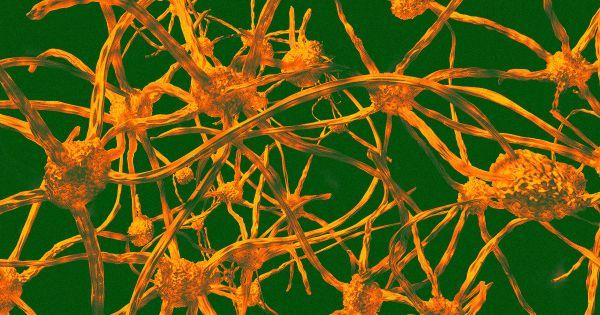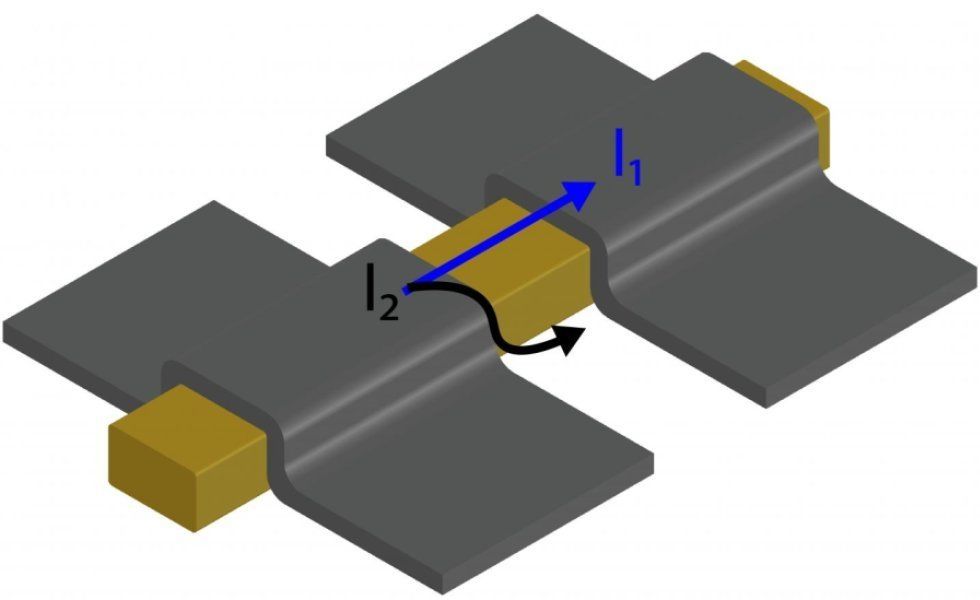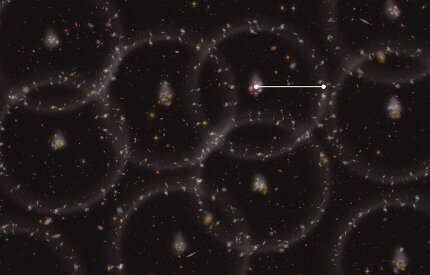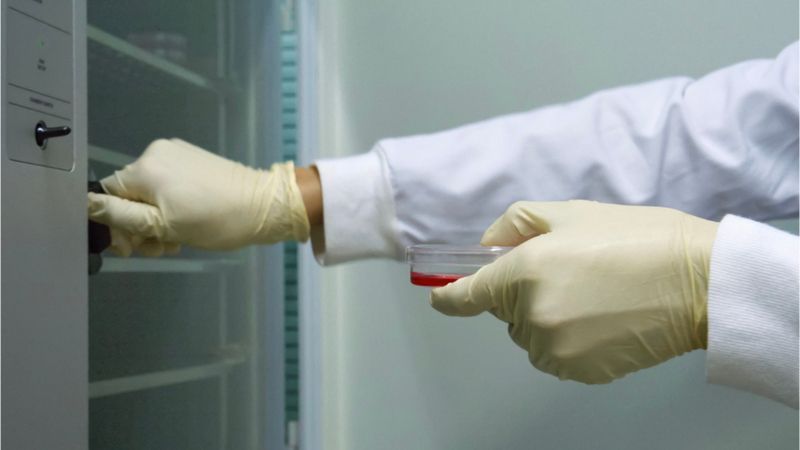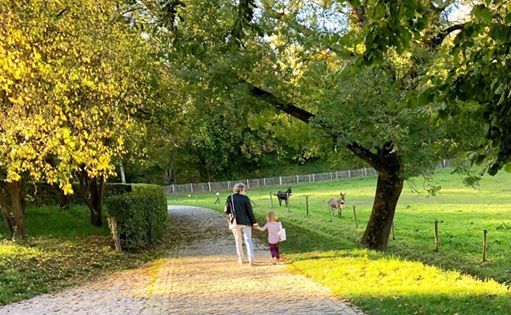Page 8144
Feb 26, 2019
‘Immunizing’ quantum bits so that they can grow up
Posted by Genevieve Klien in categories: biotech/medical, computing, quantum physics
Long story short, qubits need a better immune system before they can grow up.
A new material, engineered by Purdue University researchers into a thin strip, is one step closer to “immunizing” qubits against noise, such as heat and other parts of a computer, that interferes with how well they hold information. The work appears in Physical Review Letters.
The thin strip, called a “nanoribbon,” is a version of a material that conducts electrical current on its surface but not on the inside — called a “topological insulator” — with two superconductor electrical leads to form a device called a “Josephson junction.”
Feb 26, 2019
Neutrinos seen in the clustering of galaxies
Posted by Genevieve Klien in categories: evolution, particle physics
In early times, the universe was an energetic mix of strongly interacting particles. The first particles to break free from this dense soup were neutrinos, the lightest and most weakly interacting particles of the Standard Model of particle physics. These neutrinos are still around us today, but are very hard to detect directly because they are so weakly interacting. An international team of cosmologists, including Daniel Baumann and Benjamin Wallisch from the University of Amsterdam, have now succeeded in measuring the influence of this ‘cosmic neutrino background’ on the way galaxies have become clustered during the evolution of the universe. The research was published in Nature Physics this week.
Feb 26, 2019
And the Global Winners Are
Posted by Michael Lance in categories: education, space travel, virtual reality
Global Winner ISDApp was created by a team called iNON in the Philippines (“isda” is the Filipino word for “fish”). This community app is designed to empower fishermen with daily information useful for fishing and safety. #SpaceApps #SpaceAppsPH
A virtual reality (VR) exploration of the Moon; an educational, problem solving, and collaborative VR game for kids using NASA and planetary data; and a tool to express the wonders of satellite imagery through audio are three of the six apps chosen as Global Winners in NASA’s 2018 Space Apps Challenge. The six Global Winners were selected from 1,375 apps created during an intense 48-hour global hackathon last October.
Feb 26, 2019
The February journal club will focus on the recent paper “Genomics of 1 million parent lifespans implicates novel pathways and common diseases and distinguishes survival chances”
Posted by Steve Hill in categories: biotech/medical, life extension
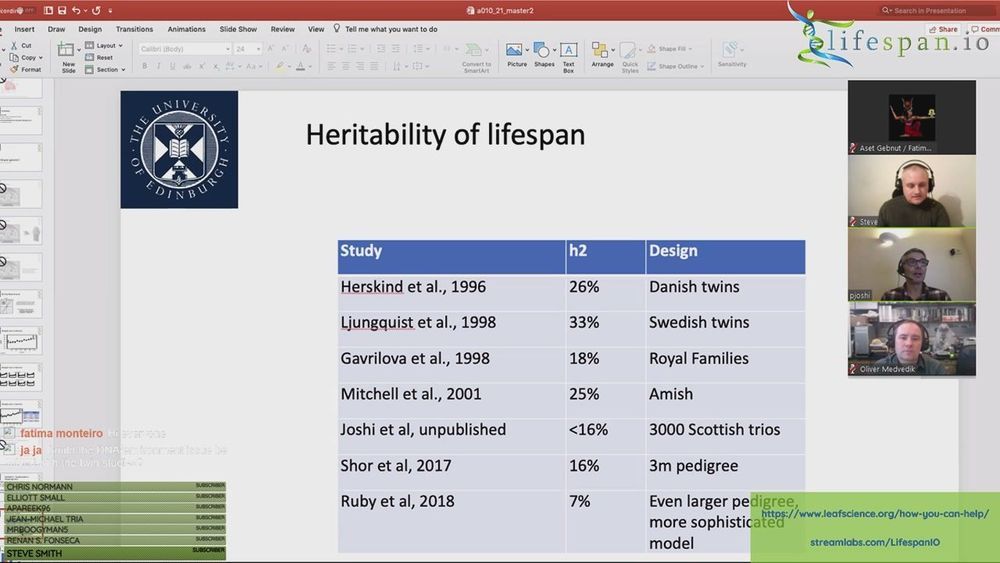
Hosted by Dr. Oliver Medvedik, we will be joined by study authors, Dr. Peter Joshi and Paul Timmers both from the University of Edinburgh, UK, who will guide us through this fascinating genomics study of human longevity.
The research paper can be found here.:
https://elifesciences.org/articles/39856
Feb 26, 2019
A Step Closer to Universal Stem Cells
Posted by Steve Hill in category: biotech/medical
Researchers at UC San Francisco have taken science a step closer to creating stem cells that are effectively “invisible” to the immune system. This may ultimately lead to the production of “off-the-shelf” stem cell therapies that do not need to be patient matched.
The immune system is a double-edged sword
One of the big challenges in creating effective stem cell therapies is how the immune system responds to cells from other donors and sources. This complex, multilayered system is designed to defend our bodies from the constant onslaught of invading pathogens that we encounter in our daily lives.
Feb 26, 2019
Why a ‘genius’ scientist thinks our consciousness originates at the quantum level
Posted by Victoria Generao in categories: neuroscience, quantum physics

Do our minds have quantum structures that give rise to consciousness? Sir Roger Penrose, one of the world’s most famous scientists, believes this and can explain how it works.
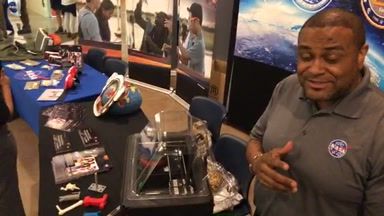
LIVE: It’s Space Day at the Texas Capitol! From 9 a.m. to 3 p.m., we will be celebrating human space exploration with interactive exhibits for the public featuring NASA Astronauts, the International Space Station, the NASA Commercial Crew Program, NASA’s Orion Spacecraft, NASA JSC Education’s High School Aerospace Scholars (HAS) program, and legislative proclamations highlighting achievements in human exploration throughout Texas.
Ask your questions in the comments!
Feb 26, 2019
Recently two new studies published in Current Biology explored the grandmothers effect on longevity, children’ survival, on age and distance
Posted by Lilia Lens-Pechakova in categories: biological, life extension
There is a theory that humans’ long life spans and women’s long postreproductive lives, might be connected through the grandmother effect. “…An analysis of church birth and death records in Finland for individuals born between 1731 and 1890 showed that having a maternal grandmother between 50 and 75 years of age while a grandchild was 5 years old or younger increased the child’s survival… The second study … it’s not just the existence of a grandmother, but her proximity that matters. The shorter the distance between grandmother and grandchild, the more involved the grandmother can be and the more benefits that accrue to her daughter and grandchildren…” See More.
Feb 26, 2019
Green and privileged childhoods signal better adult mental
Posted by Xavier Rosseel in categories: food, neuroscience
As greenery round the childhood residence shrunk, risk of mental illness as an adolescent and adult went up. Kids who grew up in plots with the least vegetation had a 15 to 50% greater incidence of a range of psychiatric problems, including depression, eating disorders, anxiety and obsessive compulsive disorder.
Two studies link parks and poshness to lower depression and cognitive decline, for reasons still unclear. Paul Biegler reports.
